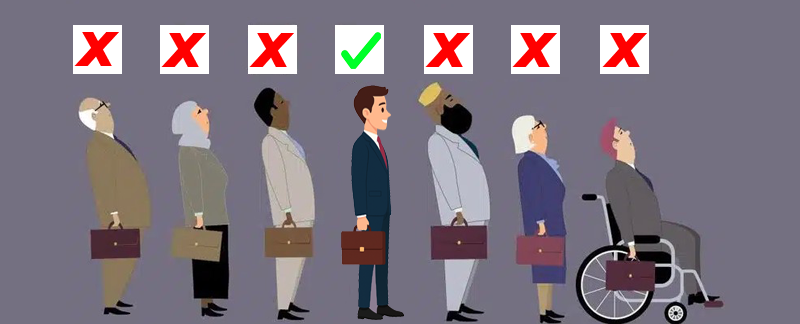When the Dominica Reform Party (DRP) takes office, one of our first and clearest acts will be to make hiring fairer. We will ban employers and recruiters from asking prospective employees about their birthday, age, sex, whether they are married, have children, or about health issues. These are not “nice to know” details, they are invitations to bias. Left unchecked they lock older workers, caregivers, women, and people with disabilities out of opportunities before they even get to the interview table.
Why? Because these questions are not neutral. They are loaded…
Age or date of birth questions are used to screen out older applicants; a question about children or marital status mask discrimination against caregivers (disproportionately women); questions about sex, gender, or health can open the door to stereotyping and unlawful exclusion. Many developed countries have recognized this reality and moved to restrict or prohibit such pre-employment questions, not to create red tape, but to protect fairness and keep talent in the workforce.
Some defenders of the old questions will say: “But employers need to know these things for legal or operational reasons.” That is already taken care of, and should be handled at the right time.
Employers can and should verify minimum legal working age, confirm fitness for particular safety-sensitive roles, and collect payroll and tax details, but those checks happen after a conditional offer or later in the onboarding process, not as part of a first sweep that weeds people out. The point of our ban is simple: separate legitimate, job-related requirements from curiosity and bias. Where an employer legitimately needs information (for example, to meet a bona fide occupational requirement or to comply with licensing laws) they may request it, but only when it is demonstrably necessary, documented, and after the applicant’s skills and fit have been assessed on their merits.
The international landscape shows why this matters. In Australia’s employment guidance and the Age Discrimination Act explicitly discourage using a candidate’s age to determine suitability, and employers there are warned against asking about family responsibilities or gender in ways that could lead to discrimination.
In Canada provincial and federal human rights bodies similarly flag age, sex, marital or parental status, and health as sensitive attributes that can not be solicited before hire, because asking them invites bias, both conscious and unconscious.
The United States approach is more nuanced: federal law protects workers against age and sex discrimination, and the Equal Employment Opportunity Commission warns that questions about age, marital status, pregnancy, or children can indicate discriminatory intent, even though some basic age verification for legal purposes is allowed. That nuance is important, but it does not change the practical effect: asking those questions at the outset chills applications from older workers and parents and becomes evidence in discrimination claims.
Here is the human cost in Dominica. Our older generations, skilled, experienced, and often eager to remain productive, face an invisible gatekeeper, a resume screened out because a date of birth made a hiring manager assume the indivdual was “not tech-savvy” or “too close to retirement.” Than there is aindivduals with past health issues that are excluded without fair assessment of whether they can do the work, as they “could cost the company to much in medical benifiets.”
Women who are parents face the presumption they will be unreliable because of their childcare. That is wasteful and unjust. It hurts families, reduces our national productivity, and sends a message that experience and responsibility are liabilities rather than assets.
Making these questions illegal during recruitment is not anti-business; it is pro-merit. It forces employers to write better job descriptions, to judge candidates by skills and results, and to document hiring decisions on relevant criteria. It protects the public purse by keeping capable workers employed and reduces litigation risk for employers who otherwise invite accusations of discriminatory hiring.
We will also pair the ban with practical tools for businesses, model application forms, interviewer training, and clear guidance on when and how employers may lawfully collect necessary information later in the process.
To critics who cry “big government”our proposal is minimal and surgical. It does not stop employers from running background checks needed for safety, confirming legal eligibility to work, or making reasonable inquiries directly tied to job performance. It simply removes the casual, discriminatory questions that have no business deciding someone’s employment future.
Dominica deserves a labour market that prizes ability over assumption and experience over stereotype. Banning premature and discriminatory personal questions in hiring is an early, practical step toward that future. It will open doors, protect dignity, and make our workforce stronger and when the Dominica Reform Party (DRP) governs, we will make it the law.
Team DRP
